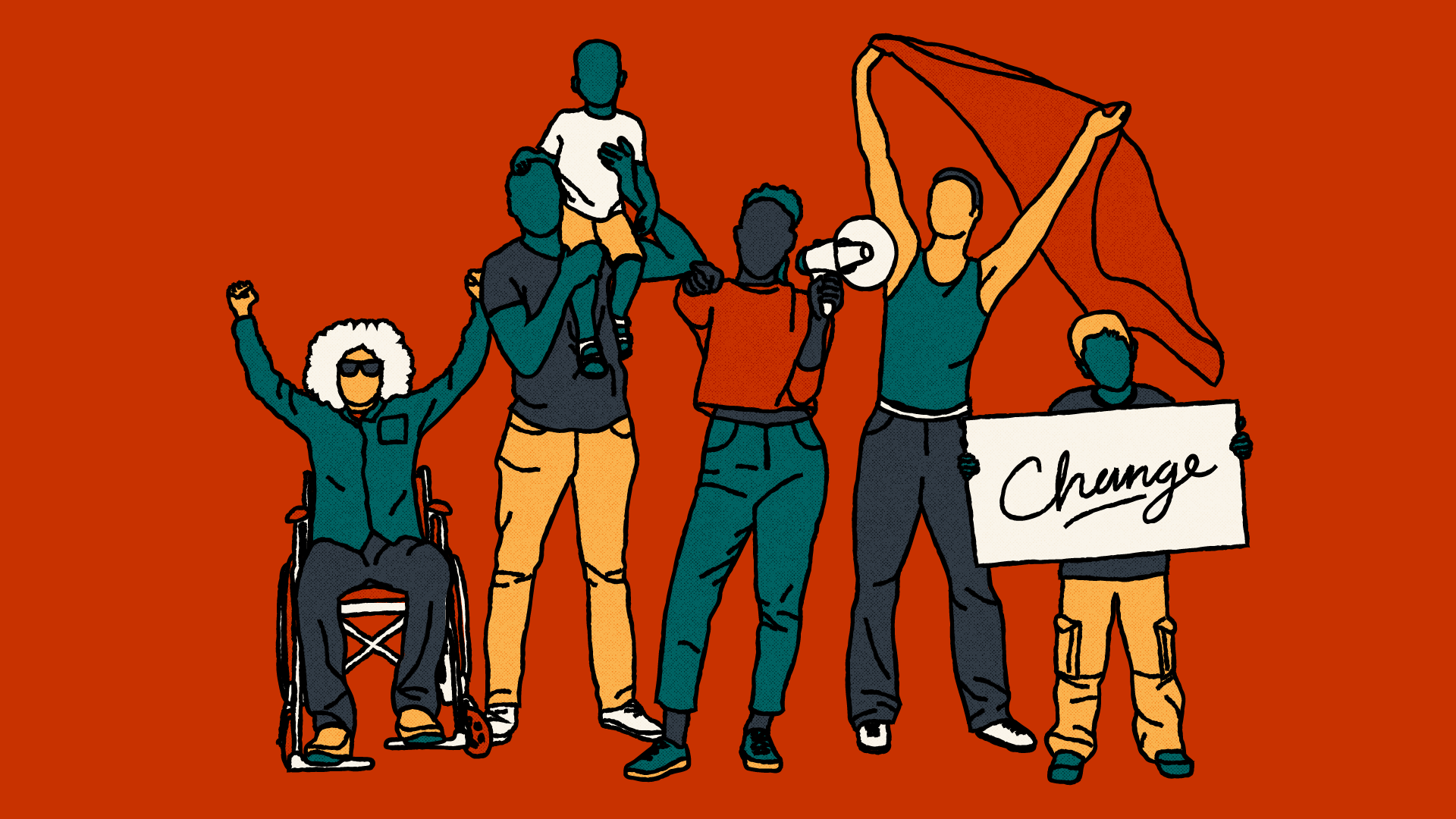Community guidelines
What we expect from our community
Expectations for organising and building together.
Updated 29 Oct 2024

Our events and workshops must uphold our values and act as brave spaces for people to learn, organise and thrive. ‍Members and Partners of Act Build Change must agree to our community guidelines. Any Member who continuously and deliberately breaks these expectations will be removed from membership sessions.
Working with us
At Act Build Change, it’s important for us to share our expectations of how we can organise and build together in an unequal world. We strive for our spaces to be brave, accessible, joyful and inviting, particularly for those disproportionately marginalised and oppressed in wider society. It is important to us, that when invited to our spaces you uphold our values. We believe that you can’t remove the power that you have, but you can be conscious of how you use your power.
While we may not always agree, it is important that we show respect for each other. Our spaces act with the intention of James Baldwin’s immortal words - ‘We can disagree and still love each other unless your disagreement is rooted in my oppression and denial of my humanity and right to exist.’
Guidelines for members
We show up with a caring and curious spirit. This means:
- Recognising each other’s contributions and experiences.
- In the words of Healing Justice London, we are soft on people but hard on ideas.
- Willing to contribute our expertise, support, skills and perspectives.
- Acknowledging when we see, cause or experience harmful behaviour.
- Being supportive of the different ways people may participate.
We consider our power and position and how this affects our engagement. This means:
- Listening to those who experience marginalisation.
- Being mindful about what we say and its impact on those around us – including making assumptions and generalisations and avoiding discriminatory language.
We respect the boundaries of the spaces and people we engage with. This means:
- Actively asking for consent and checking whether our assumptions of the boundaries of others are appropriate.
- Adhering to the level of confidentiality set in the space or session we’re in.
- We share the learnings we gain, not the stories we hear.
We are accountable to ourselves and those around us. This means:
- Being open and transparent when we fall short of the needs or expectations of us.
- When conflict or tension arises, acknowledge this and be open to finding a resolution rather than defaulting to avoidance.
- Acknowledging that the intention of our behaviour is not as important as the impact and how it has made someone feel.
- No sales pitches. We build meaningful relationships.
If members break these rules, it is at our own discretion to revoke membership. Although we don’t want to remove anyone from the group, we take any breaches very seriously, as culture is the foundation of a strong community.
Definitions
Members
Our membership includes individuals, collectives and organisations committed to working in relationship with Act Build Change to build community power.
Partners
Partners are organisations we work with and or collaborate with to deliver our community organising and collective care training and events. They may or may not be members of our community.
Participants
Participants are individuals who attend our training, events and meet ups who may or may not be members.
Community
When you join as a member, you join our thriving organiser network (community) to encourage development, with resources and solidarity to back up your efforts. Our community helps us to expand our work with collectives throughout the UK.
Consent
Consent is permission for something to happen or agreement to do something. Asking for consent means asking before doing something, and respecting the answer given.
It’s important not to assume that our boundaries are the same as other people’s. This includes physical and emotional boundaries both in offline and online settings. The boundaries of people we know may change over time. If we’re unsure of something we want to do or say is appropriate, we should check.
- Ask before touching anyone. This includes physical touching, for example, hugging.
- Ask before sharing anything about a person.
- Ask before sharing anything from a session, including screenshots, comments, or quotes.
Harassment
Harassment is any unwanted behaviour, physical or verbal, that makes a person feel unsafe or distressed.
Pronouns
In our spaces, people may choose to share their pronouns. When sharing our pronouns, we tell people how we want to be addressed without making assumptions. If you are not sure, then ask before assuming identity.